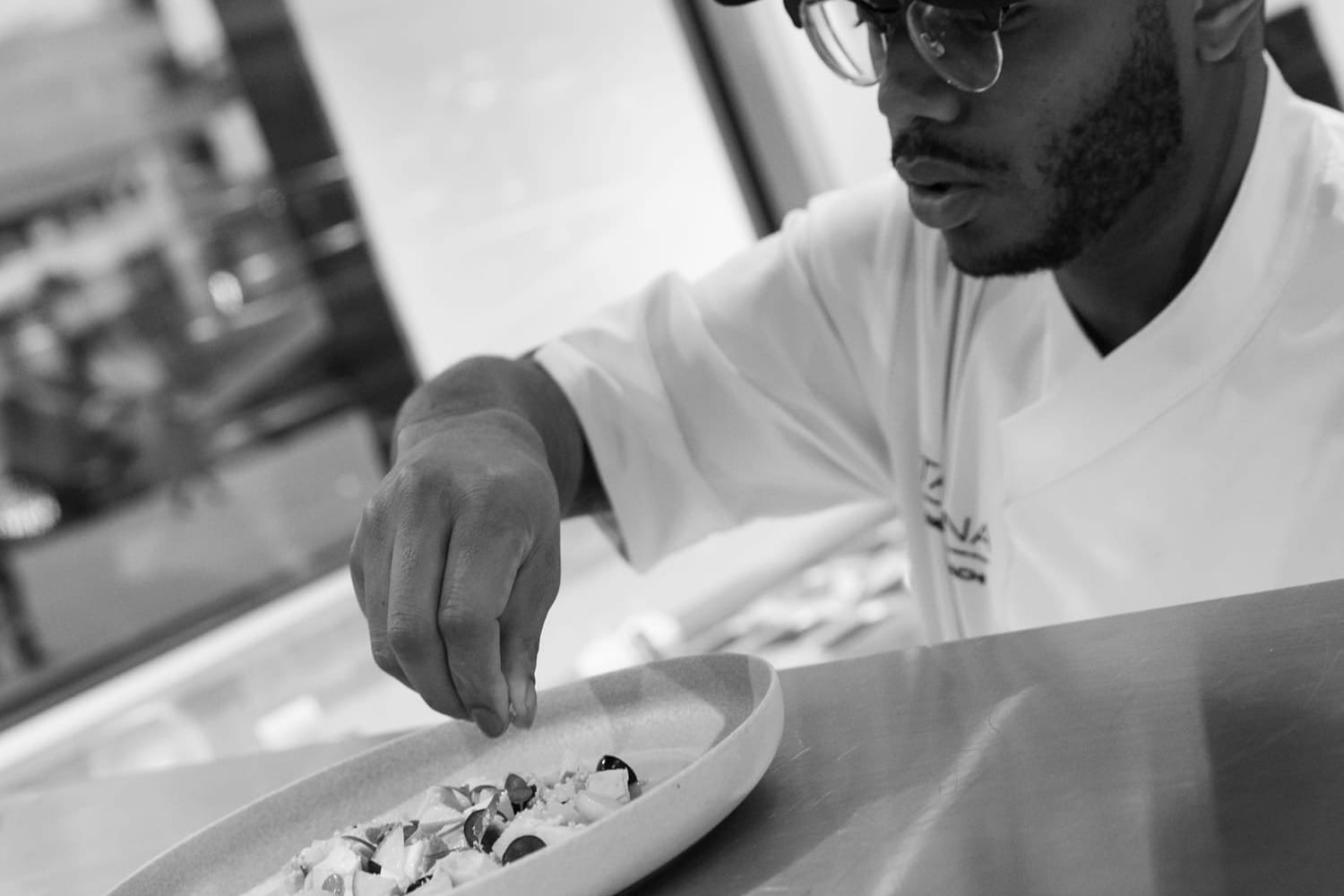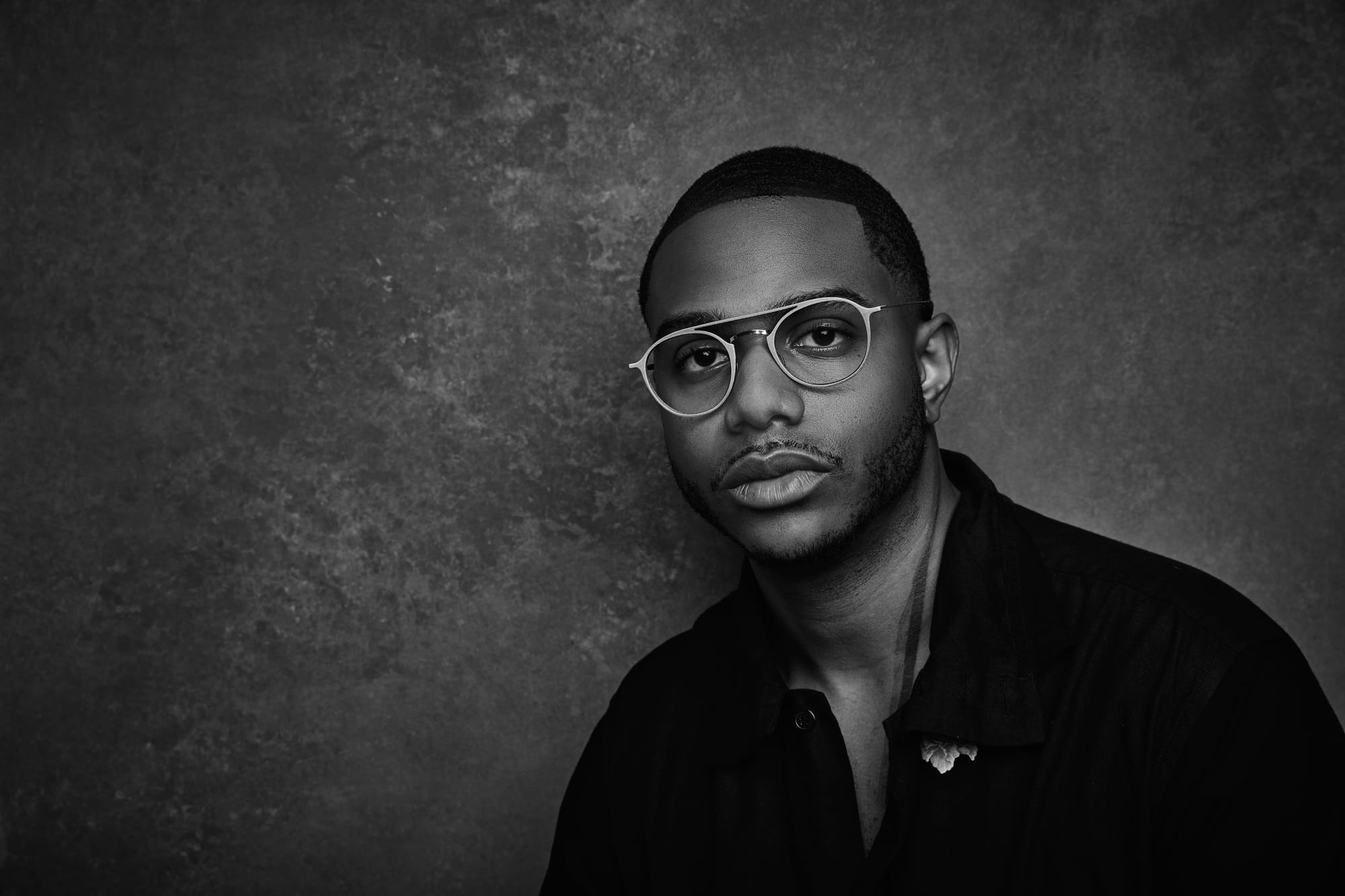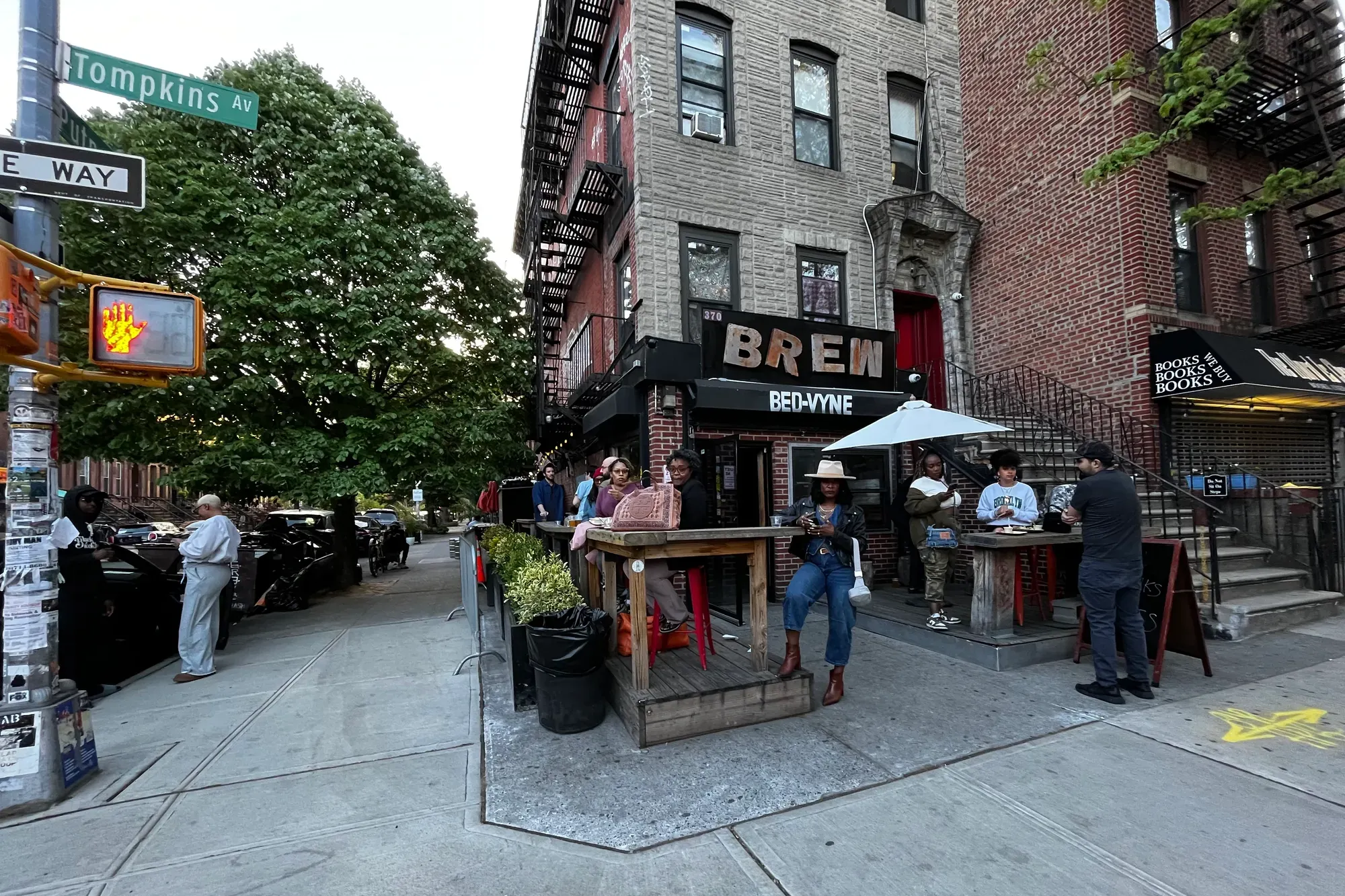“Then there is food, which is a perfect way to access the cultural anatomy of a people. It’s a great resource for learning about a community’s rituals and rhythms.” - Dipo Faloyin, Africa is not a Country
A storyteller with a knife and a cultural architect in an apron, James Beard award-winning Chef Kwame Onwuachi is one of the most celebrated culinary voices of his generation. But cooking was never initially a career path for him. In a South Bronx apartment, he grew up helping his mother, who ran a catering company from their small kitchen. Merely a chore at the time, it was in that very kitchen that his culinary identity took shape. Beyond those walls, living in the Bronx was a crash course in diversity, offering him an all access pass to a global pantry and introducing him to a range of choices, flavors and ethnicities. Meanwhile, a couple of years spent in Nigeria with his father’s relatives expanded his understanding of food and its origins. He picked papayas and slaughtered chickens for dinner, but also witnessed the labor of love that went into every meal.
Still, it wasn’t until he needed to provide for himself that cooking as a career path became a possibility. Although he worked in retail and did odd jobs, he always came back to the kitchen.
For a young Black chef though, his rise came with its share of inevitable barriers. While biases in the industry were initially disheartening to him, they were far from unfamiliar. Instead of being a deterrent, they became his fuel. Since then, much has changed. Describing it as a renaissance, Kwame acknowledges that during the last five years, there has been a boom in chefs not just expressing themselves through their food, but also being embraced for it. Chefs within the Black community now have more options of who they want to work for and have more opportunities to put their heritage on a plate.

“You can travel an ocean on a plate. You could also pass down generations of emotions - trauma, joy, pain, intermingling of culture. [Food] is a lesson in history.” - Chef Kwame
Kwame sees food as more than just sustenance. Each dish is informed by what story he wants to tell and shaped by how best to convey it. And while he is constantly innovating, representation remains at the fore, and tradition is never far behind. While he believes that tradition is in the eye of the beholder, he also recognizes that it does not mean staying static. The best version of a dish does not require changing its core. Instead, the best version is about preparing a dish in the best way possible, and, in so doing, ultimately preserving tradition.
Today, the name Chef Kwame rings out far beyond the kitchen. With restaurants like Tatiana in NYC, which has stayed fully booked since it first opened in 2022, and Dōgon, located in the Salamander Hotel in Washington, D.C., his culinary footprint continues to expand. In late 2025, he is set to open Maroon, a steakhouse in SAHARA, Las Vegas. Inspired by the Maroons of Jamaica who escaped slavery and built powerful communities for themselves, this restaurant will be the first Black chef-led restaurant on the Las Vegas Strip. He recently partnered with the team behind NYC’s Las’ Lap, a Caribbean rum bar, for the opening of its second location in Miami Beach, and will open a third location of his Patty Palace at Time Out Market, Union Square, NYC, this fall.
This August marked the return of The Family Reunion, a four-day food festival that centers around Black excellence and celebrates Black contributions to the food industry. Now in its fifth year, the event took place from August 14 to 17 at the Salamander Resort & Spa in Middleburg, VA, and brought together 40 of the most talented chefs and food professionals. An immersive experience born from the lack of representation of Black food throughout the country, The Family Reunion was Kwame’s way of creating a space he never saw. “I wanted a place where I could get together with my people,“ he says, “and have an event where you don’t just leave with your stomach full but also your heart and your mind [full].”

For Kwame, it has never been just about food. From early on, he knew that it was about building something bigger. He just needed a platform on which he could build. He wants people to look at him and know that his work is not for himself but for the greater cause of the culture.
“I always wanted to do more than just be a chef. It’s something that I am good at but it’s not the only thing that I want to do while I’m here. All chefs are multi-hyphenates. Artists in general are cultural connectors [and] cultural equalizers. It just takes time for people to really understand them or for them to convey their message properly.” - Chef Kwame
And to the next generation of young Black chefs and creatives trying to build something that is true to themselves, his advice is simple and direct: “focus on your craft and the rest will come. Continue to challenge yourself and look in the mirror and tell yourself how you can be better. Try to be the best version of yourself without outside validation.”


